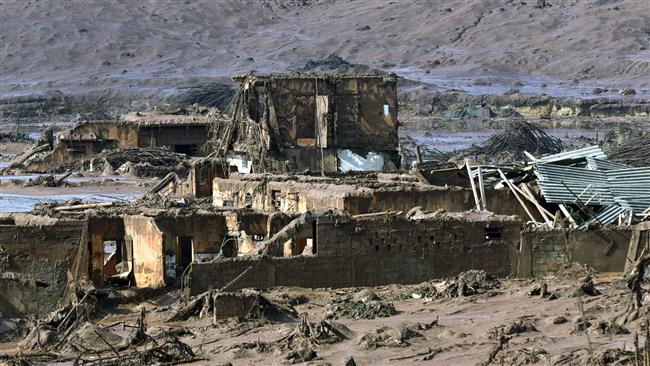Dam bursts in Brazil, media report 16 dead
Officials said two people were killed, four were injured and 13 were missing.
A local network reported that as many as 16 people may have died in the flooding following the accident at the dam, which occurred at 4.20 pm local time on Thursday.
A spokesman for the Samarco mining company, which owns the dam, said the cause of the breach was not yet known.
Images from Globo TV showed the area of the operation overrun with water and clay-red mud, with large vehicles tossed on their sides.
The surface area of mud held back by one of the burst dams, the Fundao, was equivalent to 10 football fields, said Ronaldo Bento, leader of the local miners’ union.
“Our focus in this critical moment is to preserve the integrity of people and of the environment”, Vescovi said in the video.
“The situation is very serious and there was risk of more mudslides”, said G1, quoting Mariana’s Secretary of Social Defense Braz Azevedo as saying.
Rescue teams are on site looking for survivors.
“The number of missing is going to surpass 40, but that is not official”, he said, according to Agence France-Presse.
For its part, Samarco Mineração said it presently has no idea why the dam broke. Given that the dam was holding “tailings”, which is a mining waste product of metal filings, and potentially chemicals as well, it is also feared that the disaster could contaminate a nearby river.
Prosecutors in Brazil have already opened a criminal investigation into the incident.
At a media conference in Melbourne, BHP Billiton’s CEO Andrew Mackenzie said it had yet to fully assess the extent of damage and casualties from the massive mudslide. The state’s name translates literally as “General Mines” and is home to vast open iron ore extraction operations, vital to Brazil’s commodity-dependent economy. “We can not get closer because of the mud”, he told AFP by phone Thursday. Iron ore is transported down a slurry pipe from Germano to Espirito Santo, where it is turned into pellets and shipped to customers including the Libyan Iron and Steel Co (Lisco), one of North Africa’s biggest steelmakers.








